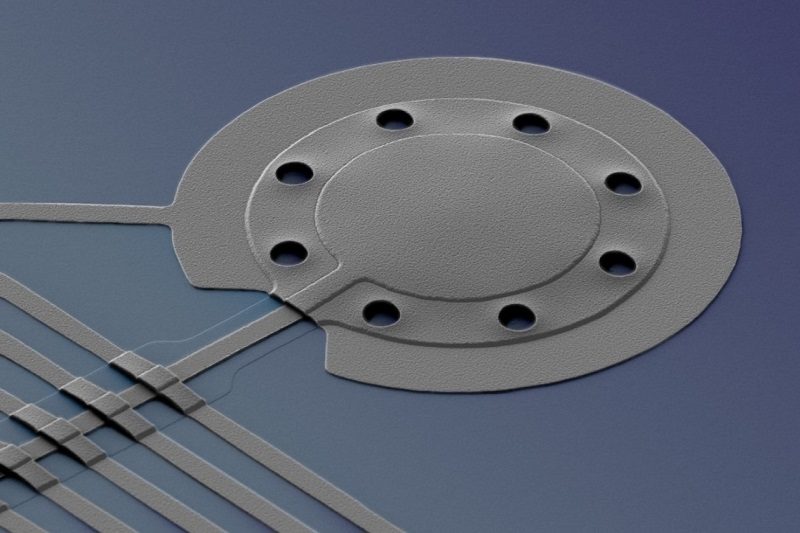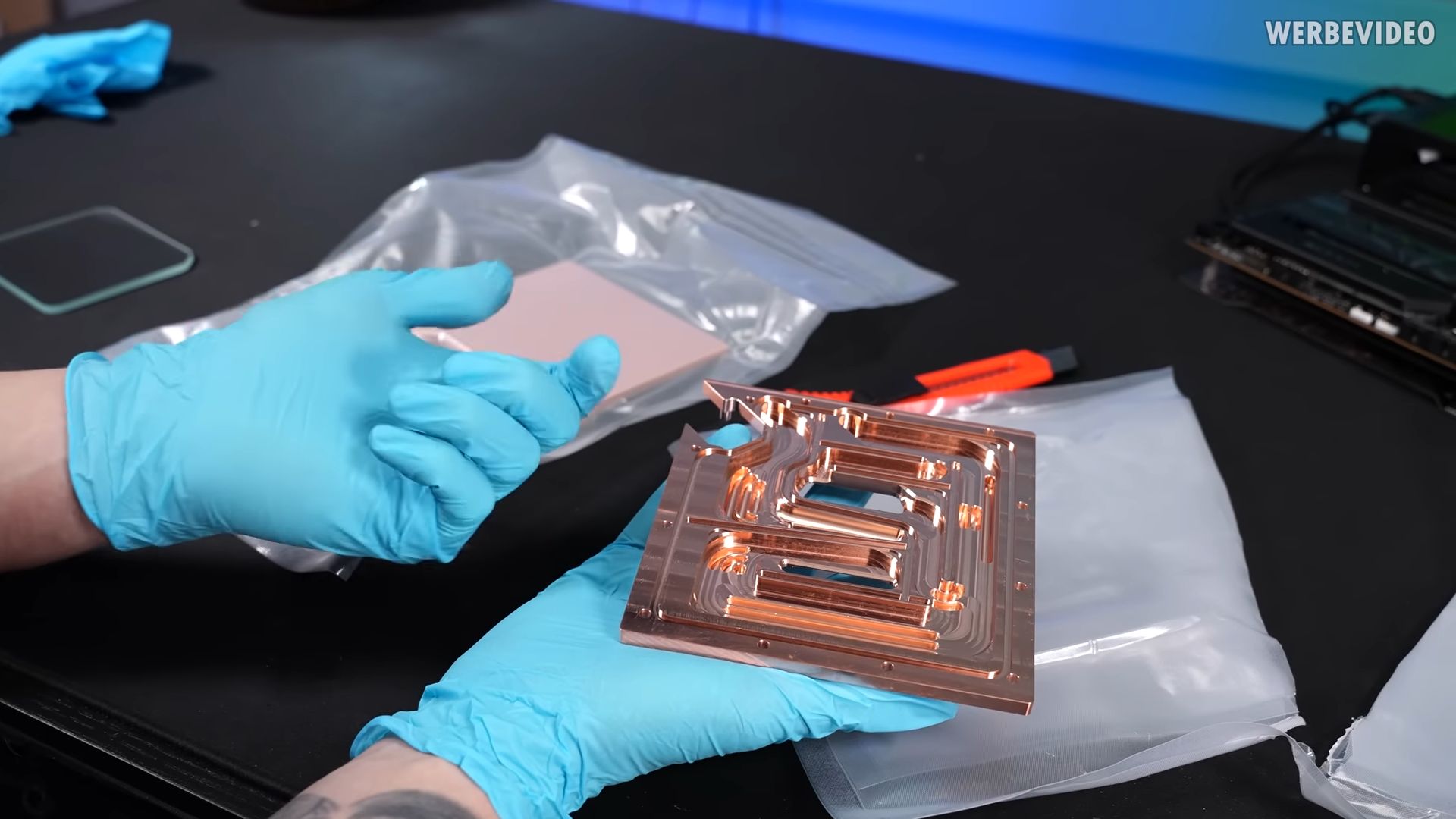Researchers Squeeze Light to Achieve Record-Breaking Cooling

Scientists have breached what was considered to be the theoretical lowest temperature limit – just above absolute zero, the point at which atoms stop moving entirely – by ‘squeezing’ the light shined at the surface of an object. That limit, known as the “quantum backaction” limit, meant that any effort to cool an object invariably generated a little excess heat, but researchers from the US National Institute of Standards and Technology (NIST) in Boulder, Colorado, developed the light squeezing technique to breach that limit by a factor of two, though still not achieving absolute zero.
The results of the experiment were published in Nature this week in a paper authored by NIST physicist John Teufel. The paper details how the team used squeezed light to cool a microscopic quantum drum (pictured above).
“If you shine exactly the right light in the right way you can make sure the light is always pushing against the motion of the atoms,” Teufel told The Washington Post.
“The limit of how cold you can make things by shining light on them was the bottleneck that was keeping people from getting colder and colder,” Teufel added. “The question was, is it fundamental or could we actually get colder?”
While the cooling method employed at NIST may be excessive for, say, regulating the temperature of a home computer, this kind of super-cooling is ideal for instruments designed to measure tiny waves and fluctuations, such as LIGO’s gravitational wave detector. In future, though, the technology could become useful for cooling the next generation of supercomputers and quantum computers.
“In principle if you had perfect squeezed light you could do perfect cooling,” Tuefel said. “No matter what we’re doing next with this research, this is now something we can keep in our bag of tricks to let us always start with a colder and quieter and better device that will help with whatever science we’re trying to do.”











